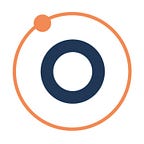By Erica Hooper Lee
IoT devices have expanded throughout the world giving us access to information from the furthest reaches of the earth. Wildlife Computers has been in the IoT business for more than 30 years. They know the powerful insight we can gain when we gather critical data from some of the world’s most challenging locations. Recently, Wildlife Computers joined the Astrocast Pilot Program and began the first phase in aligning the Astrocast IoT Nanosatellite Network with the specific needs and challenges their company faces.
“At Wildlife Computers, we design, manufacture, sell and support a wide variety of telemetry instruments (tags) for wildlife studies. Our tags are deployed on free-ranging animals and track movement and behavior, as well as provide information on the environment the animals are traveling through. The reason “Computers” is part of our name is because we were one of the first animal telemetry companies to use microprocessors in our devices,”
Melinda Holland, CEO of Wildlife Computers.
Wildlife Computers at Sea
The key to Wildlife Computers’ success is the ability to send and receive small amounts of data at undetermined intervals. And more importantly, these tags capture more than just animal behavior. Holland clarified, “We make an animal-borne CTD tag. It measures conductivity, temperature, and depth and is used by the oceanographic community to measure the temperature and salinity profiles of the water that the animal is moving through. This is really important right now for scientists studying climate change.”
The Astrocast Network — Availability, Size and Power
Tracking animals in the wild is no easy task. Wildlife Computers tracks the behavior of a variety of free-ranging animals including marine mammals, sea turtles, fish, penguins, and even birds weighing as little as 650 grams.
“What makes our application really challenging is these tags have to be as small as possible so we can put them on the widest variety of species. The goal of many of our customers is to study the behavior of free-ranging animals at sea. In order to monitor true animal behavior, we need to and reduce the impact of the tag as much as possible so it does not bias the data. Many of the animals we are tracking range globally. They won’t necessarily stay in the range of a local ground-based telemetry system or even a cellular network so we need to make small tags that will work around the globe. Finally, since most of our tags go on marine animals that don’t spend a lot of time at the surface, we might only have a few seconds to get data transmitted.”
Melinda Holland, CEO Wildlife Computers
In order to send telemetry data from the tags to home base so marine scientists, climate scientists and even shipping companies can leverage the data, Wildlife Computers needs a nanosatellite network that is designed to receive telemetry in the most challenging of environments, in the shortest amount of time, and from anywhere in the world.
The Astrocast IoT Nanosatellite Network is a bi-directional, low cost, and low power network that leverages the L Band frequency which enables the use of miniaturized antennas and operates in all weather conditions. For Wildlife Computers, this was an important part of the Astrocast Pilot Program.
Another key element to the successful Pilot phase for Wildlife Computers was the ability to work closely with the Astrocast engineering team to meet the specific challenges of their industry.
“What really helped us with the pilot program was that Astrocast’s engineers are open to hearing about our specific requirements. Astrocast was interesting to us because of all the features-it already had a satellite infrastructure going, and it had a developer’s kit. Our interaction with Astrocast and its engineers is very positive. The support is there and the development kit-both for the Wi-Fi and satellite-is there too, well documented, well presented, and written as such that it was easy to implement the different microprocessors. We set up the developer’s kit within 24 hours and within two weeks had everything up and running. The support was excellent. And the fact that Astrocast already has a satellite constellation and some of the infrastructure in place, so we could actually do a pilot study, was very important.”
Melinda Holland, CEO of Wildlife Computers.
Originally published on www.astrocast.com on November 2, 2020.
